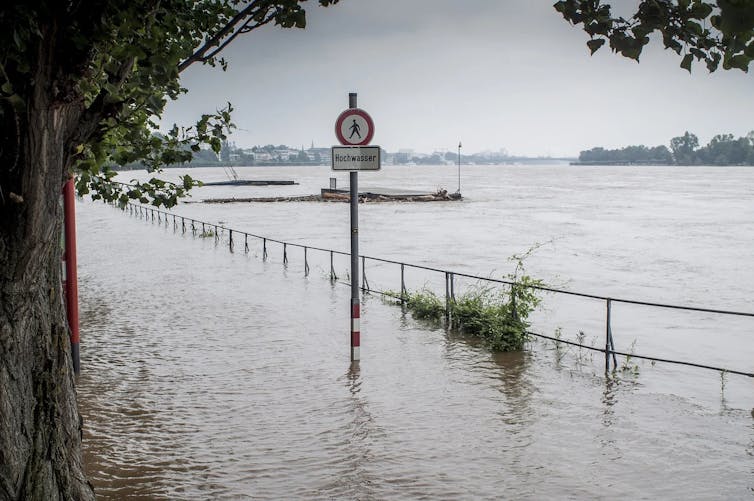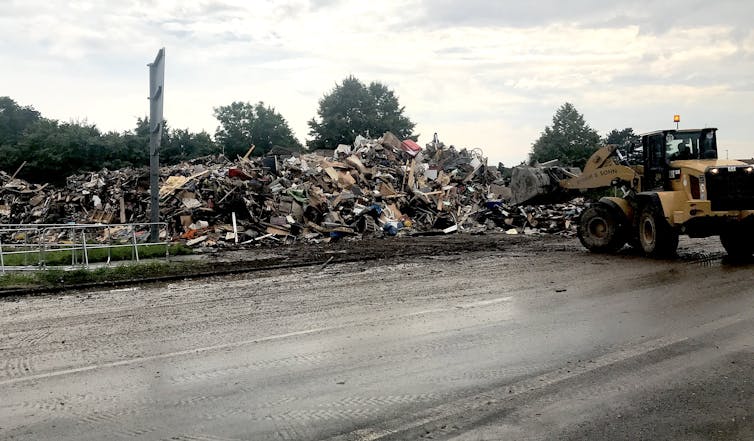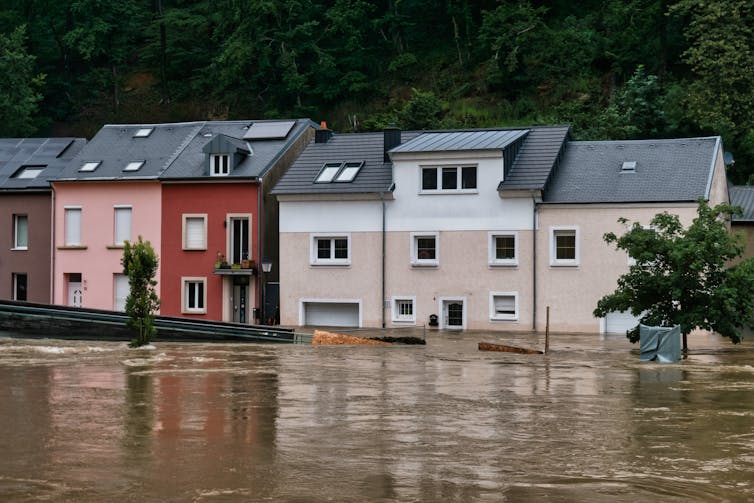Environment & Nature
If we don’t learn from past climate disasters, they will claim more lives in the future

A central focus of discussions at the ongoing UN climate summit COP26 in Glasgow is how to adapt to a warming world, including how to prevent climate hazards from becoming disasters.
A hazard turns into a disaster when it begins causing harm to human lives. That’s why, to prevent climate-related disasters, we must anticipate and adapt to future hazards to keep people safe. This will require enormous amounts of money and years of careful planning – as well as, crucially, learning from past mistakes.
This July, in the German states of Rhineland-Palatinate and North Rhine-Westphalia, devastating floods caused by torrential rains killed more than 180 people and destroyed hundreds of homes and buildings. Houses were ripped from their foundations with their occupants still inside. Trees and caravans were tossed in raging flood waters. Some rivers rose nine metres (twice the height of a double-decker bus) above their usual levels.
One woman, trapped on the first floor of her home with her two young children before later being rescued, was told by her daughter: “I know we’ll die. But please don’t be sad. We will die together.” Months later, teams of unpaid volunteers continue to drain waterlogged cellars, bulldoze wreckage, and feed families who are still homeless.

In the immediate aftermath of the floods, it was clear that something had gone badly wrong for one of the world’s richest countries to experience this scale of death and destruction. Some people – the authors included – were quick to criticise apparent failures in local and national flood preparedness systems.
These systems are essentially long, complex chains of decision-making that involve weather forecasters, politicians and emergency services. In North Rhine-Westphalia, a parliamentary inquiry was established in October to understand where this chain broke down during the summer floods, and who should be held accountable. One of us has been asked to give evidence to this inquiry, providing perspective on what went wrong and on how to improve preparation for future crises.
Luxembourg floods
As Germany flooded, so did the small landlocked country of Luxembourg, bordered by Germany to the east. Here, floods caused more than 100 evacuations and financial losses of at least £111m.
The floods seemed to take the country by surprise. Even though the Copernicus Emergency Management Service’s European Flood Awareness System (EFAS) was indicating a high chance of extreme flooding in the affected area several days in advance, some people said they received no warning of the impending rise in water levels.
What’s more, a flagship emergency warning app meant to provide early warnings to the Luxembourg population had only been downloaded by 15,000 people out of a population of 640,000 – and crashed on the day of the flood. The servers hosting Luxembourg’s National Meteorology Service website also crashed following the floods, displaying only an error message to citizens desperate for information.

Many people were unaware that they were even at risk. Later, flood victims complained that they had no idea they lived in a flood zone, did not know what to do to keep themselves safe when the water came into their houses, and had no idea where to find information about the risks they faced.
This catalogue of failures may not have been the fault of any individual agencies or individuals, but overall it is likely to have led to the material and emotional toll of the disaster being much worse than if all systems had been operational. Yet Luxembourg authorities seem unwilling to learn from this situation.
Luxembourg’s prime minister, Xavier Bettel, said in parliament that “no one could have predicted the extent of the flooding” as it unfolded: a statement that is factually incorrect, since EFAS predicted it. He then went on to insist that an external inquiry into the flood response was not necessary, since individual agencies had already reviewed their own performance.
This is a poor decision if Luxembourg wants to prepare itself better for future floods: particularly given evidence that, in this case, the lack of early warning and adequate preventative measures were the main factors causing the disaster to unfold in the way it did.
Learning from the past
After the UK suffered from severe and costly flooding from one of the wettest summers on record in 2007, the subsequent review of the country’s response by planning expert Sir Michael Pitt identified key focus areas to help the UK deal more effectively with flooding in the future.
The review provided the start of a transformational change in flood risk management across the UK. This included the creation of the Flood Forecasting Centre in April 2009 – a collaboration between the Environment Agency and the Met Office that combines weather and flooding expertise to give early warnings of extreme weather events. The centre has provided crisis management support during all major floods since that time: including flooding from two major storms, Ciara and Dennis, in February 2020.
Now, the whole world is watching Glasgow to see how leaders respond to the climate crisis. While we decide how to adapt to the increasing climate risks that lie ahead, our first job should be to learn from what communities across the world have already experienced.

This story is part of The Conversation’s coverage on COP26, the Glasgow climate conference, by experts from around the world.
Amid a rising tide of climate news and stories, The Conversation is here to clear the air and make sure you get information you can trust. More.
Hannah Cloke, Professor of Hydrology, University of Reading and Jeff Da Costa, PhD Researcher in Hydrometeorology, University of Reading
This article is republished from The Conversation under a Creative Commons license. Read the original article.





















